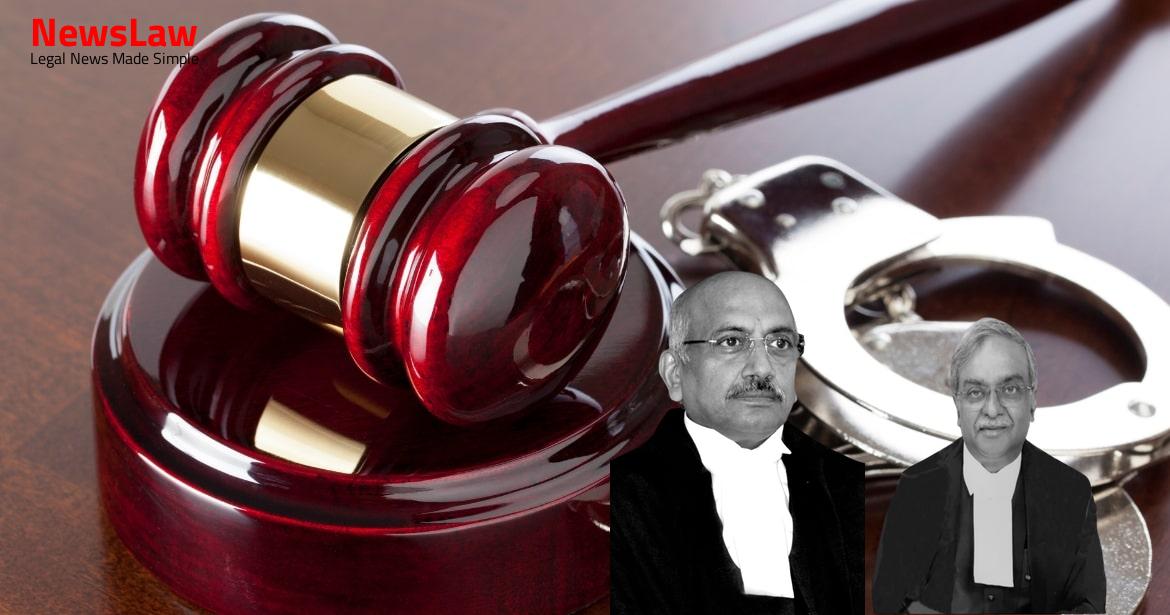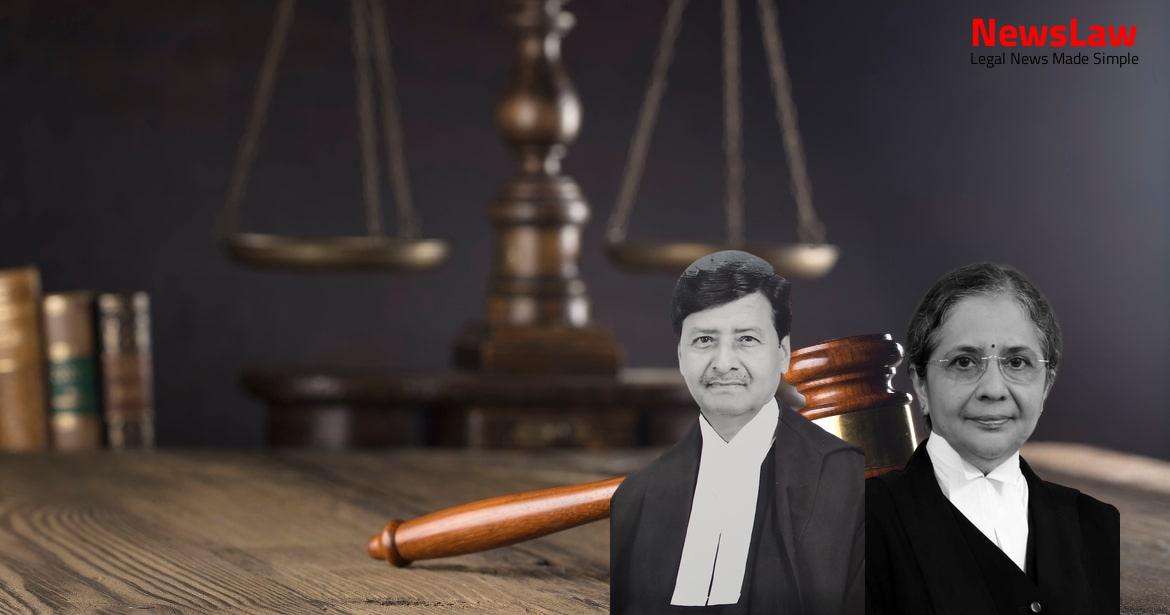In a significant legal battle over land acquisition, the Supreme Court of India made a crucial decision regarding a dispute between HMT Ltd. and Union of India. The High Court judgment, which dismissed the writ petition filed by HMT Ltd., was reversed, leading to substantial changes in the outcome of the case. Read on to understand the intricacies of this landmark ruling in the ongoing legal saga.
Facts
- Division Bench of High Court allowed Writ Appeal No 17584 of 2011 and reversed the order dated 24.05.2010 passed by a learned Judge dismissing Writ Petition No 16553 of 2006
- HMT Ltd. directed to vacate and handover identified land to the appellants/writ petitioners or pay current guidance value of the land fixed by State Government
- HMT Ltd. also held liable to pay rental compensation from 02.03.1973 with 6% per annum interest till date of payment
- Union of India and its Defence department officials held jointly and severally liable along with HMT Ltd. for non-compliance
- Division Bench corrected errors in its judgment dated 05.09.2019 upon application by the appellants/writ petitioners
- Smt. Rukmini appeared as PW1 before the Arbitral Tribunal and stated the history of land acquisition in Survey Nos. 21 and 22 of Jarakabande Kaval Village.
- The lands were requisitioned by the Defence of India in 1941 and subsequently acquired to a certain extent.
- The remaining land was sold to Mohd. Ghouse by the claimants’ grandmother.
- Ac. 0-23 Guntas of land was left with HMT Ltd. out of the original requisitioned extent.
- Ac. 0-27 Guntas was acquired by the Ministry of Defence in 1954.
- In 1973, Ac. 5-38 Guntas were acquired by the Ministry of Defence from the remaining land that was requisitioned in 1941.
- The respondents filed a writ petition seeking rental compensation from 1973 onwards and possession of the remaining land.
- The writ petition was dismissed due to delay and lack of action by the petitioners over the years.
- The review petition was allowed by the High Court, framing three issues for consideration.
- HMT Ltd. sold part of the acquired land to Dollars Construction and Engineering Pvt. Ltd.
- The petitioners claimed they had requested compensation or possession of the land but were ignored by the respondents.
- The respondents did not disclose crucial facts such as the sale to Mohd. Ghouse and the release of land by the Ministry of Defence in 1953.
- The Ministry of Defence had requisitioned the land under the Act of 1952 and paid crop compensation to Putta Narasamma.
- The respondents were aware of the sale to Mohd. Ghouse but chose to suppress this information in their petition.
Also Read: High Court of Madhya Pradesh Reverses Judgment on Charges against Accused in Assault Case
Analysis
- Delay in filing a writ petition can result in prejudice as parties’ positions may change.
- Delay by authorities can be a cause of action and relief can only be granted if the delay is justified.
- Government servants face challenges like transfers and superannuation due to delays.
- Lack of candid disclosure of facts or misleading the Court can result in petition dismissal without considering merits.
- Courts insist on good explanations for delays in filing writ petitions.
- Dismissals for delay serve the purpose of focusing on active cases rather than stale disputes.
- Important to approach the Writ Court with clean hands and present all facts without concealing anything.
- Suppression of relevant information can lead to petition dismissal as an abuse of process.
- Cases of delay and laches can be fatal and result in dismissal of the writ petition.
- The jurisdiction of the High Court under Article 226 of the Constitution is extraordinary, equitable, and discretionary.
- The prerogative Writs mentioned in Article 226 are issued for doing substantial justice.
- A Constitutional Court should be convinced that the case warrants exercise of jurisdiction under Article 226 of the Constitution.
- Grant of relief by a Constitutional Court under Article 226 without considering blameworthy conduct like delay and laches would be unsustainable.
- Approaching the High Court should be done diligently by an aggrieved person.
- Issues in the case demonstrate disputed questions of fact that could not be adjudicated by the High Court under Article 226 of the Constitution.
- Orders were passed in ignorance of the full facts of the case and the lack of bonafides on the part of the respondents/writ petitioners.
- Correspondence and documents produced need proper examination of genesis and foundation and cannot be relied upon without proper proof.
- Internal correspondence of the Ministry of Defence and survey maps drawn up do not merit consideration at this stage.
- W.P. No 16553 of 2006 filed by the respondents/writ petitioners should not have been entertained.
Also Read: Amendment of Pleadings in Smt. Suman Agarwal (Bindal) v. Smt. Katoribai
Decision
- The respondents/writ petitioners are not subjected to punitive or exemplary costs despite their deserving nature.
- All pending Interlocutory Applications (IAs) are closed as a result of the appeals being allowed.
- Writ Petition No. 16553 of 2006 filed by the respondents/writ petitioners is dismissed entirely.
- The judgment and order passed by the Division Bench of the High Court of Karnataka allowing the writ petition cannot be sustained due to multiple reasons.
Also Read: Joint Liability and Common Intention: Supreme Court Verdict
Case Title: HMT LTD. Vs. RUKMINI (2024 INSC 728)
Case Number: C.A. No.-010805-010806 – 2024



